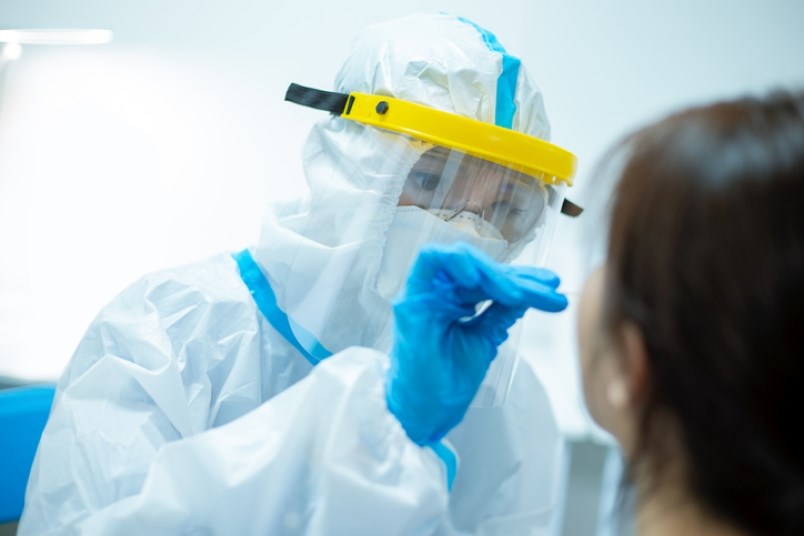You’ve seen it on TV and online (as well as COVID-19 assessment centres).
Soon, Sault College will perform COVID-19 rapid screening tests on some of its students beginning in February.
“They’re like a little stick.”
That from Janice Beatty, Sault College corporate and student services vice president, describing the appearance of the test kits to the college’s board of governors at its first meeting of 2021, held virtually Thursday.
“It’s done by a nasopharyngeal swab and the results are available in approximately 15 minutes,” Beatty said.
The tests are a pilot program of ‘point of care’ testing which can be performed on campus, outside a licensed lab.
However, not everyone entering Sault College will be automatically subjected to having a rather large Q-tip stuck up his/her nose.
At least, not yet.
“We’ve made the decision to have a very small group of volunteers (take the test)...this will be a trial both for process and for procedure, and also for accuracy, and we will be putting out a call to students who are already coming on campus (during the current winter term). We don’t want to be bringing anyone on campus who should not be there. Algoma Public Health (APH) wants us to limit the numbers,” Beatty said.
The federal government purchased 20 million rapid screening COVID tests and introduced the pilot to “assess the value of the Panbio antigen test as a screening tool to support employee safety/ business continuity.”
Sault College was accepted to receive 320 test kits, the rapid screening pilot program to be carried out with 40 tests a week over eight weeks.
“If they receive a positive test, the positive test has to be confirmed by the PCR test, which is the gold standard in testing (within 24 hours at the Sault Area Hospital assessment centre),” Beatty told the board.
The testing requires a medical directive from a doctor or nurse practitioner and performed by a nurse practitioner, registered nurse or registered practical nurse.
The tests will be performed on a voluntary basis on students 18 and over with consent, those who are asymptomatic, with no known exposure to COVID-19 and who have not travelled outside the Sault and Algoma region in the past two weeks.
“Hopefully, as the college opens up and these tests become more broadly available, we may consider doing it on a larger scale,” Beatty said.
In a review of current COVID-19 procedure under provincial government regulations, Colin Kirkwood, Sault College vice president academic and research, said the college:
- is allowed to provide in-person instruction if remote instruction is not an option
- must observe physical distancing of at least two metres in classrooms
- is still restricted, even with physical distancing in large spaces, to no more than 10 students in a classroom, with the exception of some health care programs which allow up to 50 students in a classroom
Mask wearing, of course, continues.
With a mix of in-person and remote instruction, Sault College has a total of 62 programs being offered in the winter semester. Of those, 37 of those programs (approximately 60 per cent) offer in-person instruction, in both postsecondary and apprenticeship programs.
Approximately 1,000 students visit the campus for in-person instruction these days, but not all at once.
The highest number of students receiving in-person instruction on campus peaks at about 300 at 12:30 p.m. each Wednesday, Kirkwood reported.
“I can’t believe I’m about to say this, we’re in day 321 of the pandemic,” said Kirkwood at Thursday’s board meeting, commending staff, students and faculty for enduring the COVID-19 long haul thus far.



